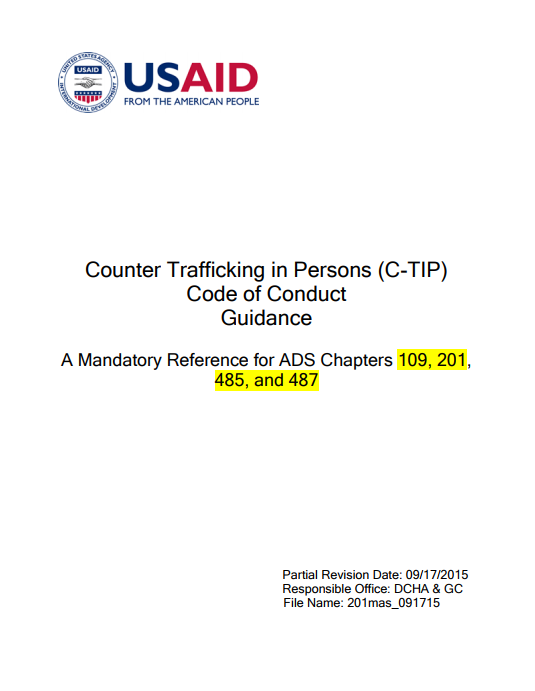Guidance on the Implementation of USAID Counter Trafficking in Persons Code of Conduct
This document provides guidance on the implementation of USAID’s Counter Trafficking in Persons Code of Conduct.
USAID adopted a Counter Trafficking in Persons Code of Conduct that prohibits all employees from engaging in trafficking in persons or any behaviors that may facilitate trafficking, such as commercial sex.

This document provides guidance on the implementation of USAID’s Counter Trafficking in Persons Code of Conduct.
The case studies described in this brief reveal that there are benefits for suppliers to implementing social and environmental improvement programs, including improved workforce productivity, cost savings, and stronger competitiveness. Buyers also b...Read More
Forced labour is violation of labour and human rights. It is a global challenge faced by many countries and sectors. Governments, employer and business membership organizations, workers’ organizations, and other stakeholders all have a role to pla...Read More
This statement has been written in accordance with the requirements of the UK Modern Slavery Act 2015. This is IHG’s fifth Modern Slavery Statement and reflects the progress IHG has made during the financial year (January – December) 2020. The s...Read More
Every year, more than 100,000 people are detained for migration control purposes in the European Union. Immigration detention places individuals’ lives on hold, as people do not know when, or if, they will ever be released. It has a severe impa...Read More